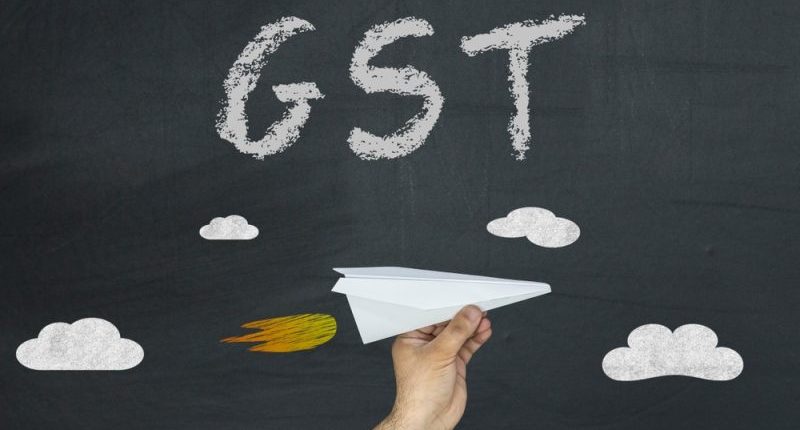“Every cloud has a silver lining” may aptly form part of the answer to this question. Some of the recent High Court judgements versus GST amendments have left businesses to wonder if they can still go ahead and claim the transitional tax credits, that is their vested rights. These tax credits belonged to the pre-GST regimes such as Central Excise, Service Tax and VAT.
The tax anomaly was in the matter of imposing a timeline to file form TRAN-01, that allows taxpayers to bring forward their pre-GST tax credits under the current regime of GST.
Section 140 in the CGST Act governs transitional provisions of all the pre-GST tax laws (tax credit, whether or not part of VAT, service tax or excise returns). The section redirects one to Rule 117 of the CGST Rules to discover the complete manner in which transitional input tax credit must be brought forward.
Before the Finance Act, 2020, the section was legally never time-bound. However, the Rule specified a time limit of 90 days from 1st July 2017. This date has also been extended till 27th December 2017. Accordingly, if there is any form of inconsistency between the Rule and the Act, the general rules of interpretation state that the Act must prevail.
Many businesses missed the deadline of 27th December 2017. While a specific section of these taxpayers faced technical glitches on the GST portal during TRAN-01 upload, there was another section who either had inadequate systems to file online or could not comply due to lack of professional help with the deadline.
Nonetheless, the government came to the rescue by providing extended time limit to only those who faced technical glitches on the GST portal while uploading the TRAN-01. Such an extension is available till 30th June 2020 vide CGST notification number 35/2020 dated 3rd April 2020. This addresses the plight of the former section of taxpayers.
The issue that is yet to be resolved pertains to the latter section. Many businesses may have faced any other genuine difficulties and hence missed claiming the transitional credit. Two recent developments in 2020 are noteworthy here.
Firstly, the Finance Act, 2020 has amended Section 140 to include time restriction, retrospectively from 1st July 2017. Therefore, the inconsistency mentioned above between the Act and the Rule is put to rest.
Also, the date of applicability of this amended section has been notified as 18th May 2020 onwards. All those High Court judgements passed on the ground for inconsistency between the Act and the Rule, concerning the time limit of taking transitional credit, will need to be reviewed. The petitioner may have to approach the apex court too.
Also Read: Government Released GST Compensation Cess, Says No to COVID Cess
Secondly, on 5th May 2020, the Delhi High Court had passed a landmark judgement in Brand Equity Treaties Limited v/s The Union Of India & ORS (2020) VIL-196-DEL. It favoured a taxpayer who missed claiming transitional credit. It must be noted that at that time, section 140, amended to impose a time limit, was still not notified.
However, this judgement has various other aspects, apart from the timelimit issue, which can still hold good for such hard-pressed businesses as on the current day. These may provide enterprises to (other than those who failed due to technical glitches on GST portal), a ray of hope to claim transitional credits.
Points of contention that can still hold good before the judicial system are as follows:
- The Limitation Act, 1963 may provide the right to take the transitional credit up to 30th June 2020 (i.e. three years from the date of implementation of the GST), since this is a civil right vested upon the taxpayer. Furthermore, there was no time limit under the Cenvat Credit Rules, 2004 to utilise the cenvat credit once availed.
- A taxpayer may invoke Article 14 of the Indian Constitution that provides for equal protection of the laws within India or equality before the law. “Technical difficulties” may be observed to have a broader meaning attached to it, beyond GST portal. Alternatively, based on sufficient and reasonable cause shown to the government for being unable to file TRAN-01, the authorities may still allow such taxpayer to submit the form.
- A taxpayer may invoke Article 300A of the Indian Constitution that saves a person from being deprived of his property, except by law. Since the transitional tax credit is a property vested with the taxpayer, he cannot be deprived of it, unless otherwise specified by law. Further, the GST law does not provide for any provision that allows a refund of tax credits availed under the pre-GST law, which mostly have been suspended.
The High Courts who had passed favourable judgements for taxpayers advised them to either file online, if the TRAN-01 facility is open, or to manually approach the respective jurisdictional authorities. Hence, all those businesses who wish to file TRAN-01, to bring forward their transitional credits, must submit manually with the tax authorities. The authorities may allow claims on a case-to-case basis, provided the taxpayers submit enough evidence that can prove the hardship they faced while filing TRAN-01. This approach is necessary because they can utilise tax credit only once it is credited to the electronic credit ledger.
The rest of the taxpayers having no evidence at hand have to take only the long and painful juridical route. But, they too must make their submission of claims with authorities physically before 30th June 2020 (before getting time-barred), to be able to justify themselves later on.
The GST Council must reconsider and be accommodative of this issue, given that COVID-19 times are burning out businesses, especially MSMEs left with almost no cash. It would be ideal to allow the filing of TRAN-01 until 30th June 2020, as a one-time amendment.
Also, suitable representations before the GST Council by various legal, professional bodies and industries will expedite the need for this relaxation.
For any clarifications/feedback on the topic, please contact the writer at annapoorna.m@cleartax.in
Annapoorna, popularly known as Anna, is an aspiring Chartered Accountant with a flair for GST. She spends most of her day Singing hymns to the tune of jee-es-tee! Well, not most of her day, just now and then.





